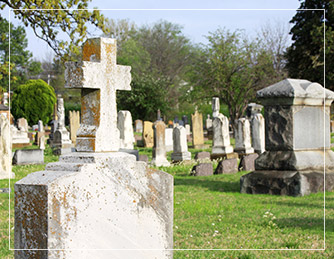Bereavement
WebMD Medical Reference
Medically Reviewed by Dr Rob Hicks
The loss of a partner, close relative, friend or someone you care for can be a devastating time during which many emotions may be experienced from sadness to anger and sometimes guilt.
Talking about these feelings can help, whether with family and friends or a specialist bereavement counsellor.
Currently there is no legal right to paid time off from a job for bereavement. Currently employees only have the right to ‘reasonable’ time off without pay to deal with things like funeral arrangements for a dependant relative or dependant person living in the same home.
Life after caring
A caring role can come to an end for a number of different reasons, but it’s always a time of adjustment. Here’s how to make the transition as smooth as possible.
Look after yourself
Your first reaction may be relief that a challenging time has come to an end. It’s common for relief to be followed by guilt, and you may begin to question whether you did enough, or could have done more, in your role as a carer.
If your caring role has come to an end suddenly, you may go through a period of shock, or grief if you have been bereaved.
Remember, there is never one right way to feel in times of change and upheaval and you could experience a different range of emotions every day. Try to look after yourself physically, by eating well and getting some exercise by walking every day if you can.
Acknowledging your feelings is healthier than ignoring them. If you can, try to talk through how you feel with a friend or family member who is supportive. Your GP may recommend counselling to help you get over this difficult time. The British Association for Counselling and Psychotherapy (BACP) can provide details of local counsellors.
Experiencing grief
Grieving is a natural process and it’s normal to experience very strong emotions, but there is no wrong or right way to feel and people can react in very different ways. What’s important is to allow yourself to feel and do what is right for you, not what someone else says you should be feeling.
People often find the first two or three months after a death are taken up with practical tasks and it’s only after this that the loss makes an impact. Even if you know someone is going to die, the moment of death can still come as a shock. You may experience a whole range of feelings, including difficulty concentrating, forgetfulness, anxiety, anger, isolation and physical pain. You may also feel relief that the person has died, and experience guilt about this feeling.
It’s important not to ignore your grief or to try to move on before you’re ready. There will be times when you feel better, but other times when you seem to have taken a step back – birthdays, holidays and anniversaries can be particularly painful. Sharing your feelings with someone you can trust can help. Many people have also found that joining a bereavement support organisation, such as Cruse Bereavement Care, can be a tremendous support, providing social contact, counselling and help with practical matters. Alternatively, the British Association for Counselling and Psychotherapy (BACP) can provide details of local counsellors who have specialised training in bereavement support.
Coping financially
If your caring role has come to an end because of bereavement, you may qualify for a Bereavement Payment, Widowed Parent’s Allowance or Bereavement Allowance. Contact your local Benefits Agency for more advice.
You shouldn’t cash any of the deceased’s pensions or benefits after their death, send them back to the Social Security office with any order books, and a completed Certificate for Social Security Benefits (you are given one when you register the death).
If your caring role has come to an end for other reasons, you may find that any benefits you have been entitled to, such as your Carer’s Allowance, stop.
If you find you’re struggling financially, contact your local Citizens Advice Bureau to find out if you are getting all the benefits you are entitled to.
Finding a new role
One of the biggest adjustments to make when a caring role comes to an end is suddenly having a lot more time on your hands. Becoming a volunteer, and using your caring experience to help others in a similar situation, can be a rewarding way of making this transition. If this appeals, why not contact the charity you have been most involved with in your role as a carer, and ask them how you can help?
If you took a career break to become a carer, or put your plans to study on hold, then you may want to take the opportunity to get back into paid employment, retrain for a new career, get a qualification or pursue an interest.
What to say to a child when a loved one dies
It’s not something we want to dwell on but helping children deal with bereavement could be something we do have to face.
According to Child Bereavement UK, 92% of children and young people will experience a ‘significant’ bereavement before the age of 16, and up to 70% of schools will have a bereaved pupil on their register at any time.
Around 1 in 29 children will experience the loss of a parent or sibling, some may experience the death of a grandparent, friend or teacher. There is no correct formula on how to grieve, but there are some things you can say that can help.
It’s good to talk
You may think you’re helping by trying to divert a child from their grief, but ignoring their feelings can be damaging in the long term. Instead, don’t be afraid to talk about the person who has died and include children in remembering.
Children may not have the emotional capacity to focus on their grief for long periods of time. In order to protect themselves they may deliberately take their mind off things by playing, but they do still need the opportunity to grieve.
Let a child know there is no right or wrong way to feel. Everyone’s grief is different. They may be angry, sad, guilty or go into denial. Recognising that this is normal is important. If they aren’t encouraged to express their grief, they may never learn how to live with it.
Allow a bereaved child or young person to say how they feel and don’t be offended if they are angry with you or do not want to talk out loud. Instead you could maybe encourage them to let out their emotions in a private letter to the person who has died, or maybe by drawing a picture or making a photo collage.
Age matters
One in 29 school-age children will have a parent or sibling who has died and how they deal with it very much depends on age.
Small children, under 6-years old, may well be able to say that someone has died or is dead but have no real understanding of what that means. They may believe the person who has died is doing the equivalent of working away and will be coming back at some point, maybe to take them swimming at the weekend, or to meet them from school. It will take a while before they realise the permanence of the situation.
However, don’t think that just because they are too young to understand the full implications of death that they do not feel loss. According to Cruse Bereavement Care even babies are able to experience loss. A baby cannot process the implications of bereavement, but that does not mean they do not feel the loss in their life.
Slightly older children will grasp the reality better but won’t necessarily realise everyone dies in the end, including themselves.
Eventually a young person will understand that it’s not just old people who die, but young people can die too through accident or illness.
It’s important to know that children will revisit their grief at each developmental stage. So, under-5s as they get older and comprehend more, may revisit their grief in the light of their new understanding. So telling them once when they are little will not be enough, and they may need help at each stage.
Language matters
The British aren’t known for speaking plainly on the subject of death and can instead say things like, ‘Daddy has gone to sleep,’ or ‘Granny has passed over’. They may think they’re being kind but children really won’t understand, they may think Daddy will wake up and they missed Granny passing by. So speak plainly, in an age appropriate way.
Avoid remarks like, ‘Come on be a big brave girl for mummy’ or ‘Big boys don’t cry’. Comments like this, however well intentioned, can make children feel they need to hide their feelings or that what they are feeling is wrong. This can cause complications later.
Be honest with a bereaved child giving them the facts in clear and simple language. Answer their questions truthfully, even if the details they’re seeking about death or burial or cremation seem inappropriate to your adult sensibilities.
Children need information, alongside love and reassurance, so they can understand as much as possible.
Seek support
Help your child realise that although their lives will never be the same again that doesn’t mean they can no longer be happy, or won’t still have an exciting future ahead of them.
If you are grieving as well, then helping a child can seem like a huge task, but there are a lot of groups, charities and support lines out there offering help. You are not the first person to have found themselves in this situation, and you don’t have to cope alone. Your GP will also be able to advise. If you think you need professional help for your child, remember this is not a sign of failure, quite the opposite, you are doing the right thing for your family, and the memory of the much loved person who has died.



